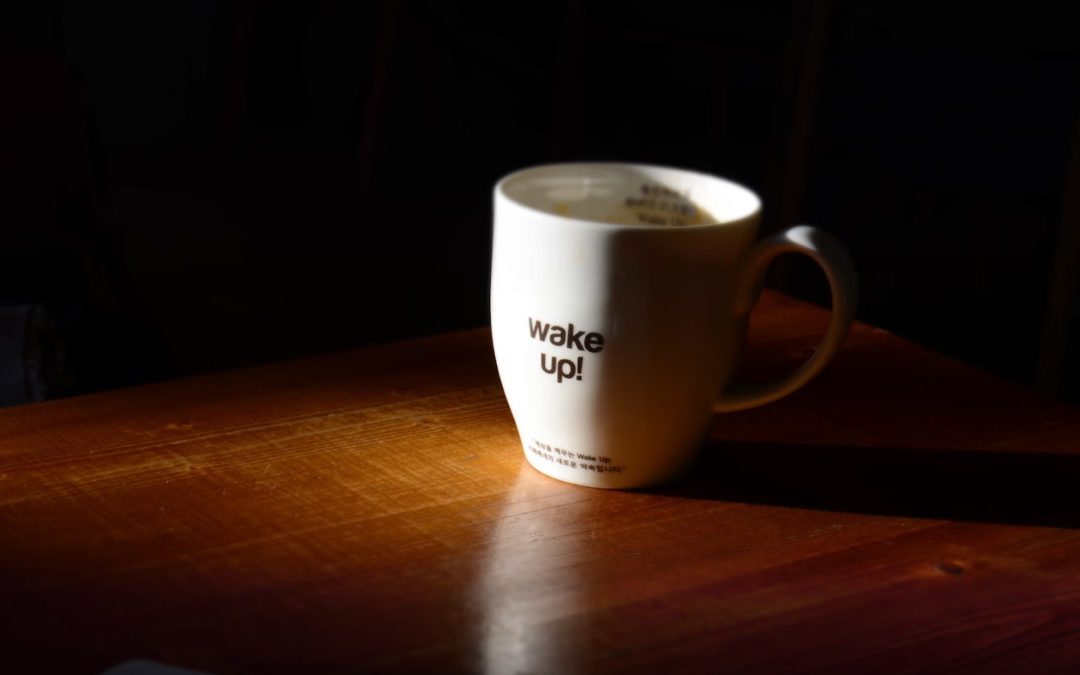As you try to master your morning routine, you might encounter issues from the moment you wake up. You would love to open your eyes and bounce out of bed full of energy, but it’s not always that simple, is it?
The good news is that you’re not alone. Many people experience substantial grogginess when they wake up and it can often take hours for them to feel normal and productive. So what if you could activate your brain as soon as possible to start the day the right way? You’ve come to the right place and here is some advice on how to wake up your brain first thing in the morning.
Why Do You Feel Groggy In the Morning?
Don’t worry if you feel groggy first thing in the morning. It happens to plenty of people. Furthermore, learning why you feel so tired even if you think you’ve had a good night’s sleep can help you identify what to change to ensure you always wake up feeling ready for the day.
Poor Sleep Quality
Poor sleep quality could be the reason you feel so groggy every morning. There are various reasons why this happens, including your bedroom environment, whether it’s too hot, cold, or noisy to get a good night’s sleep. Another issue could be if you spend the night tossing and turning if you can’t get comfortable. Identifying what keeps you up at night, such as an uncomfortable bed or hot bedroom should help you solve your sleep quality issues.
Going to Bed Too Late
If you go to bed late, you’re already putting yourself at a disadvantage even if you sleep through the night. The average adult needs between seven and nine hours of sleep, so if you aren’t getting that, you’re more likely to feel groggy when you wake up. If you need to wake up at six, you need to go to bed by eleven P.M. depending on how much sleep you need.
Drinking Too Much Before Bed
You already know that drinking heavily before bed can cause problems, but even a few drinks before bed can affect your sleep and cause you to wake up feeling rough. Understanding the link between alcohol and sleep can help you work on your drinking habits and encourage you to cut down. You can still enjoy a glass of wine with dinner or after getting home from work, but keep it to one drink to prevent significant sleep issues.
Stress and Anxiety
Even if you go to bed at a sensible time, you might struggle to get to sleep quickly because you’re experiencing significant stress and anxiety that make it impossible to switch your mind off and drift off. Working on your stress and anxiety is not an easy fix, but you can use breathing and grounding techniques to help you calm your mind before going to bed to help you get to sleep easier and sleep through the night.
Blue Light Exposure
Many people play on their phones until it’s time to go to sleep, but while it might feel like an inconsequential activity, it can actually impact your sleep quality and cause you to feel groggy when you wake up. A smartphone’s blue light tricks your brain into staying awake and active, so knowing how to stop blue light with a filter can help you get to sleep easier. Even better, don’t play on your phone at all when you’re in bed.
How to Activate Your Brain in the Morning
If you want to ensure you can take on the day as soon as you get up, you should know how to activate your brain as soon as possible to help you focus and reap the benefits of productivity while you make the most of your morning energy.
Chug A Glass of Water
You probably feel groggy because you’re dehydrated, which makes sense considering you haven’t drank water since you went to bed. Chugging a glass of water as soon as you wake up–even before you’ve had a coffee–can increase your energy levels and help you wake up quickly. The rush of hydration will; activate your brain and help you think clearly, meaning you can immediately get into morning mode instead of dragging yourself around the house feeling sluggish.
Get Up and Stay Up
If you often wake up to use the bathroom only to go back to sleep, you will struggle to wake up efficiently when it’s time to get out of bed. The solution is to get up and stay up. You might think that you need an extra few minutes but this isn’t the case unless you wake up in the middle of the night. If you wake up a few minutes before your alarm, there’s no point in climbing back into bed since it will make it even more difficult to get up. So, if you need to use the bathroom, you may as well start your day.
Exercise
Exercise helps get the blood flowing and can help you focus your mind. However, many people believe waking up early to exercise is too difficult, especially if your bed is the comfiest place in the world. Still, if you want to activate your brain and start the day right, exercising is a fantastic solution. You don’t even need to go to the gym or go for a run. Situps, pushups, lunges, or yoga are all things you can do at home to help you get into gear.
Play Games to Stimulate Your Brain
Your brain also needs stimulation, so if you don’t want to exercise first thing, you can still play games to help you wake up. Brain teasers encourage your mind to get to work which helps you become more alert and gets you ready for the day. You can also try online games like Solitaire, Checkers, or Backgammon, especially if you’re just sitting on the sofa waiting for the kettle to boil.
Stop Snoozing
Everyone loves a snooze and many people will set their alarms half an hour before they need to get up so they can ensure they don’t have to get up immediately. However, using the snooze button can still make you feel groggy since you never get back to sleep properly after your alarm goes off. If anything, it can make things worse as you still feel like you’re sleeping but your body is starting to wake up. It’s best to get up as soon as your alarm goes off to avoid grogginess, or even sleeping through your alarm.
Make Your Bed
Being productive as soon as you get up can help you get your brain working and help you build positive momentum. If you want to start your day with something simple but essential, try making your bed as soon as you get up or after you’ve brushed your teeth. You get to tick something off your list so you don’t have to worry about it later and it’s better to come home to a ready-made bed than a messy one.
Journal
You can also try to kickstart your brain before doing anything else. A quick journal entry only takes ten minutes and you can start your day by activating different areas of your brain. You can write about your dreams, outline your schedule, or bullet point your goals for the day.
Read
If you wish to read more, you can get through books much faster if you take some time to tread every morning. You know that reading for self-care is great for the body and mind, so reading a chapter as soon as you wake up will help you tick something off. This way, you won’t feel guilty about those books on your nightstand or in your backpack that you hardly touch.
Don’t Touch Your Phone
It’s tempting to check your phone as soon as you wake up. You want to look at your emails or respond to messages from friends. However, this habit can also affect your grogginess, especially if you’re only doing the same thing as you did before bed. You have all day to check your phone, so try to use your morning more productively by reading, exercising, or doing some housework instead.
Fix Your Sleep Schedule
Fixing your sleep schedule will also help you eliminate grogginess and ensure your brain feels ready as soon as you get out of bed. The secret is to wake up at the same time every day, even on weekends, so your brain and body become more in tune with one another. If you make a habit to get up at six or seven every day, your body clock will adjust and you won’t spend the first few hours battling exhaustion like you do currently.
Activate
Getting going in the morning can be tricky, but this information should help you identify why you feel so groggy and how you can make positive changes. Soon enough, you’ll feel switched on as soon as you wake up and you’ll be ready to deal with whatever the day throws at you, whether you’re going to work, exercising, or getting some essential chores done around the house.










